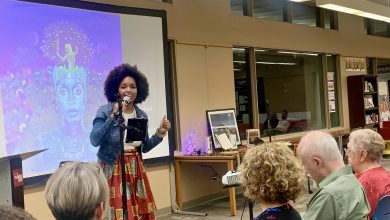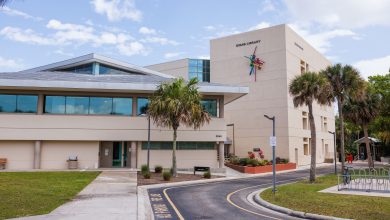Open Access Tools: ORCiD and more
Guest post by David Lowe
We continue our celebration of Open Access (OA) Week with a look at some of the tools (and their purposes) that are coming into focus in this sphere of scholarly activity. In my post this past Monday, I mentioned the new author identifier known as ORCiD, and urged everyone to register for one at orcid.org . But why would we need such a thing, with profiles appearing in all sorts of professional and social media? In a phrase, it’s a matter of mistaken (or mistakable) identities. If you’ve ever Googled or otherwise searched for a person by name in any online database, you know that (depending on the name) it can be difficult to isolate the search results for just that one person you are looking for. A unique identifier allows for grouping all of the relevant material in its proper place under a particular person. This notion should be a priority for many reasons, not the least being grant funding: we know that one funder—the Wellcome Trust in the UK—recently started requiring ORCiDs from grant proposal submitters, while many other grant agencies at least request them, and the trend is sure to grow. We are pleased to announce that Evans Library recently became a member organization of ORCiD, so we will be able to help manage and maintain profiles of Florida Tech affiliates. We urge you to register and populate your ORCiD profile! Feel free to let us know how we can help.
The personal identifier solution will help make people aware of your work as a set of materials, and that’s the first step toward access. But what other important steps might scholars take to facilitate communicating and sharing their work? Three key areas to keep in mind here would be repositories, licensing, and networking.
Repositories are databases in which you can archive your research work. Florida Tech’s Scholarship Repository has been discussed in an earlier blog post here (https://news.fit.edu/blog/campus/library/open-access-florida-tech-scholarship-repository/ ). It is OA in principle (but embargoes are possible where appropriate), and indexed by your favorite search engines. Other repositories with low barriers to entry would be figshare (figshare.com) and Harvard’s Dataverse (dataverse.org). Your grant funder may have specific preferences (NOAA, for example, has its own repositories), but FIT OA materials are always welcome at repository.lib.fit.edu . Note that non-exclusivity tends to be a common attribute with the OA ethic, so you might have your materials deposited in more than one place.
Similarly, another previous blog post here discussed Creative Commons (CC) licensing (https://news.fit.edu/blog/campus/library/creative-commons-whats-flavor/ ). Have you ever seen or read something a colleague had put together (articles, sure, or maybe a slide or other graphic, or perhaps a survey) and wondered if you could use it? Traditionally, we as academics would have needed to contact the author for permission if our implementation were to exceed the bounds of educational Fair Use. With CC licensing in place, however, we can simply cite the source and follow the licensing provisions the author stipulates, and proceed on our merry scholarly way. Much simpler than messy permissions phone tag.
Next, networks of affinities abound, and increasingly rare nowadays is the person unfamiliar with FaceBook or LinkedIn or Twitter. We are social beings with hardwired tendencies to interact, and our professional lives in general are no exception, nor is the particular environment of the online world. Academic networking platforms come from a range of instigators, such as professional organizations (such as IEEE’s Collabratec), or from information companies (such as Elsevier’s Mendeley or Thomson Reuters’ Project Neon), or from academic libraries (such as VIVO), or from enthusiastic researchers (researchGate.net), or even from venture capitalists and angel investors (such as academia.edu). It would be worthwhile to explore at least one with relevance to your discipline (perhaps by probing colleagues or relevant email listservs). These are fine avenues for making your work known and sharing it, which increases the likelihood of citation for you.





